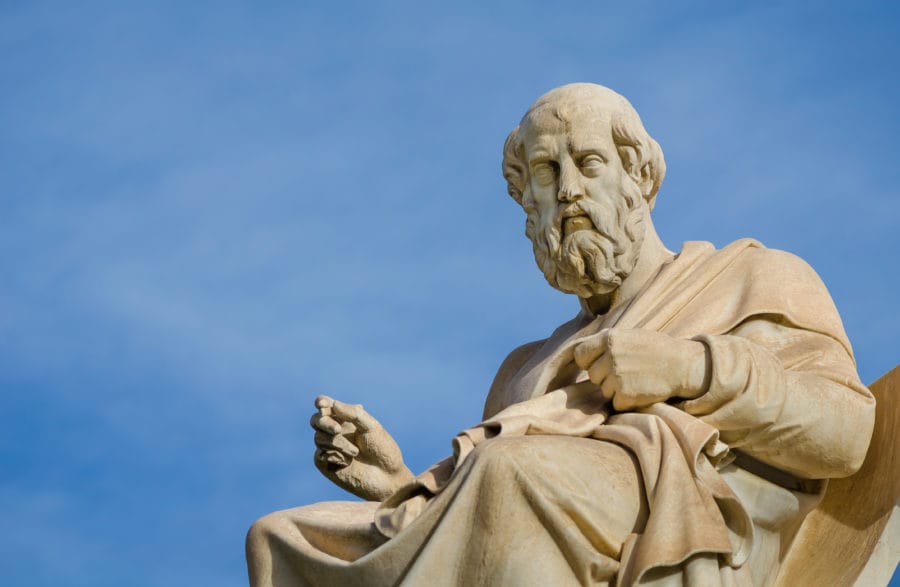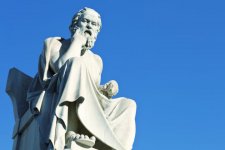Menu
Install the app
How to install the app on iOS
Follow along with the video below to see how to install our site as a web app on your home screen.
Note: This feature may not be available in some browsers.
Greek History Community
Who are your favorite Greek philosophers?
- Thread starter cf_fraiser
- Start date
1 - 7 of 7 Posts
Vangelis
Active member
I remember doing this at school and thinking what is this rubbish they are teaching us? Now, I find myself quoting it all the time!Aristotle for sure. I love the allegory of the cave
francescool
Active member
Same!! The more we learn the more were able to learnI remember doing this at school and thinking what is this rubbish they are teaching us? Now, I find myself quoting it all the time!
k_tsoukalas
Administrator
I think it is a good idea to start with an overview. There are many philosophers, and all came about at different time periods and have different, conflicting beliefs. Maybe start here?

 www.greekboston.com
www.greekboston.com

Top Ancient Greek Philosophers
Here's a look at the top ten ancient Greek philosophers.
 www.greekboston.com
www.greekboston.com
1 - 7 of 7 Posts
JOIN THE DISCUSSION AND READ OTHER GREEK INFO:
Fall of Constantinople Information
- dimi_pat
- Greek History Forum
- Replies: 1
I'm currently delving into the history of the Byzantine Empire, and I'm particularly fascinated by the fall of Constantinople in 1453. I’d love to gather more detailed information on this pivotal event. Specifically, I’m interested in:
- The key factors that led to the fall of Constantinople.
- The major players involved in the siege, including leaders and military strategies.
- The role of technology and weaponry, such as the use of cannons.
- The immediate and long-term impacts on the Byzantine Empire and the wider world.
- Any recommended books, documentaries, or articles that provide a thorough analysis of the event.
Oracle of Delphi an Historical Figure?
- d_kakavouli
- Greek History Forum
- Replies: 1
I’ve been reading a lot about ancient Greek history lately, and I’m fascinated by the stories surrounding the Oracle of Delphi. From what I understand, the Oracle played a significant role in advising leaders and shaping the course of events in the ancient world. However, I’m a bit confused about whether the Oracle of Delphi was a specific historical figure or more of a title held by different priestesses over time.
Was there a single, renowned Oracle, or was it a succession of women who served in this role? How much of what we know is based on historical facts versus mythology? If anyone has more detailed information or can recommend sources on the history and function of the Oracle, I’d love to learn more!
Was there a single, renowned Oracle, or was it a succession of women who served in this role? How much of what we know is based on historical facts versus mythology? If anyone has more detailed information or can recommend sources on the history and function of the Oracle, I’d love to learn more!
Naval Strategy - Battle of Salamis
- dimi_pat
- Greek History Forum
- Replies: 1
I'm fascinated by ancient naval warfare, and I've been diving deep into the Battle of Salamis (480 BC) between the Greeks and Persians. The way the smaller, outnumbered Greek fleet managed to outmaneuver the Persians is just incredible! I'd love to hear more insights into the naval strategies used by Themistocles and how the geography of the straits played a role in the battle's outcome. Was it purely the tactical advantage of the terrain, or did Greek ship design also give them an edge? Also, are there any lesser-known details about the Persian fleet's strategy or their mistakes during the battle? I'd appreciate any book recommendations or resources for a deeper understanding of this pivotal moment in naval history.
Crash Course to Learning Greek Philosophy?
- voula_slat
- Greek History Forum
- Replies: 1
I’ve recently become really interested in Greek philosophy, but I’m feeling a bit overwhelmed by where to start. There are so many philosophers, schools of thought, and ancient texts that I’m not sure how to structure my learning.
I’d love to get a crash course-style approach—something that gives me a solid foundation before diving deeper. Should I start with Plato and Aristotle, or go even earlier with the Pre-Socratics? Are there any beginner-friendly books, online courses, or videos that give a clear overview of key ideas?
Also, how much of the original texts should I read, or are there good modern summaries that explain them in a more accessible way?
If anyone has a structured learning path or recommendations for someone just starting out, I’d really appreciate it! Looking forward to your insights.
I’d love to get a crash course-style approach—something that gives me a solid foundation before diving deeper. Should I start with Plato and Aristotle, or go even earlier with the Pre-Socratics? Are there any beginner-friendly books, online courses, or videos that give a clear overview of key ideas?
Also, how much of the original texts should I read, or are there good modern summaries that explain them in a more accessible way?
If anyone has a structured learning path or recommendations for someone just starting out, I’d really appreciate it! Looking forward to your insights.
Formation of the Greek City-States (Polis)
- dimi_pat
- Greek History Forum
- Replies: 1
I've been reading up on Ancient Greece and am fascinated by the formation of the city-states, or polis. It's intriguing how these independent communities, each with their own government, culture, and identity, developed in close proximity to each other. I'm curious about the factors that led to their formation and would love to hear from anyone with insights or expertise on this topic.
What were the key social, political, or geographical influences that contributed to the rise of these city-states? How did the mountainous terrain of Greece affect their development? I've read that trade and colonization also played significant roles—how did these aspects influence the growth and governance of the polis?
Do you have some info for me off the top of your head, or even a book or two that I can read!
What were the key social, political, or geographical influences that contributed to the rise of these city-states? How did the mountainous terrain of Greece affect their development? I've read that trade and colonization also played significant roles—how did these aspects influence the growth and governance of the polis?
Do you have some info for me off the top of your head, or even a book or two that I can read!
Share and discuss Greek history!
WorldwideGreeks.com is a free online forum community where people can discuss Greek food, travel, traditions, history and mythology.
Join Worldwide Greeks here!
Join Worldwide Greeks here!
JOIN COMMUNITY FOR FREE
LOGIN TO YOUR ACCOUNT



